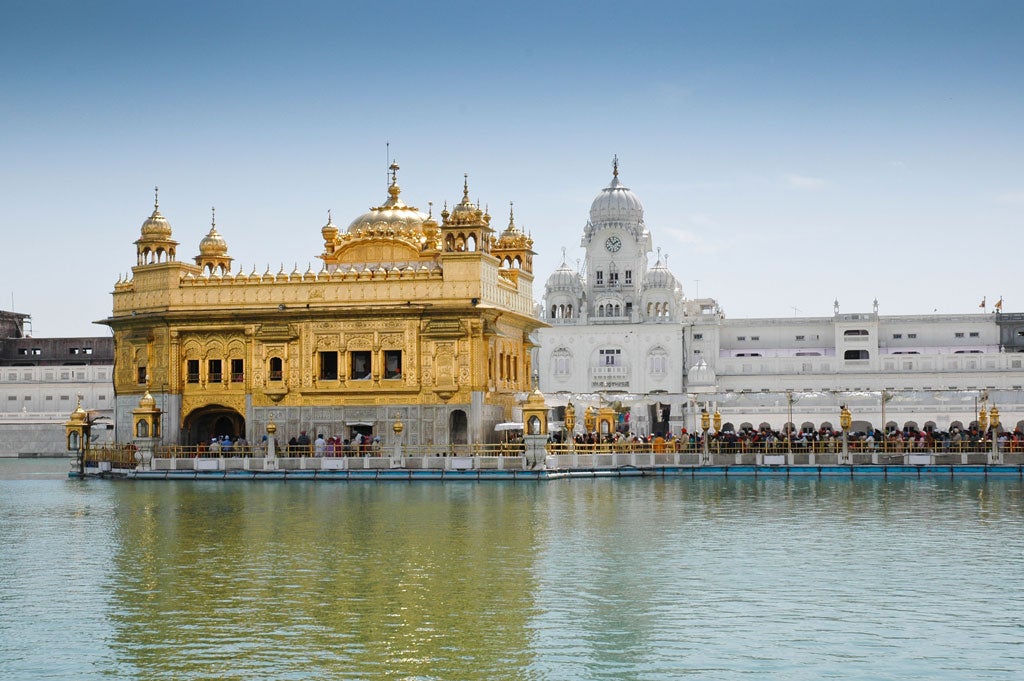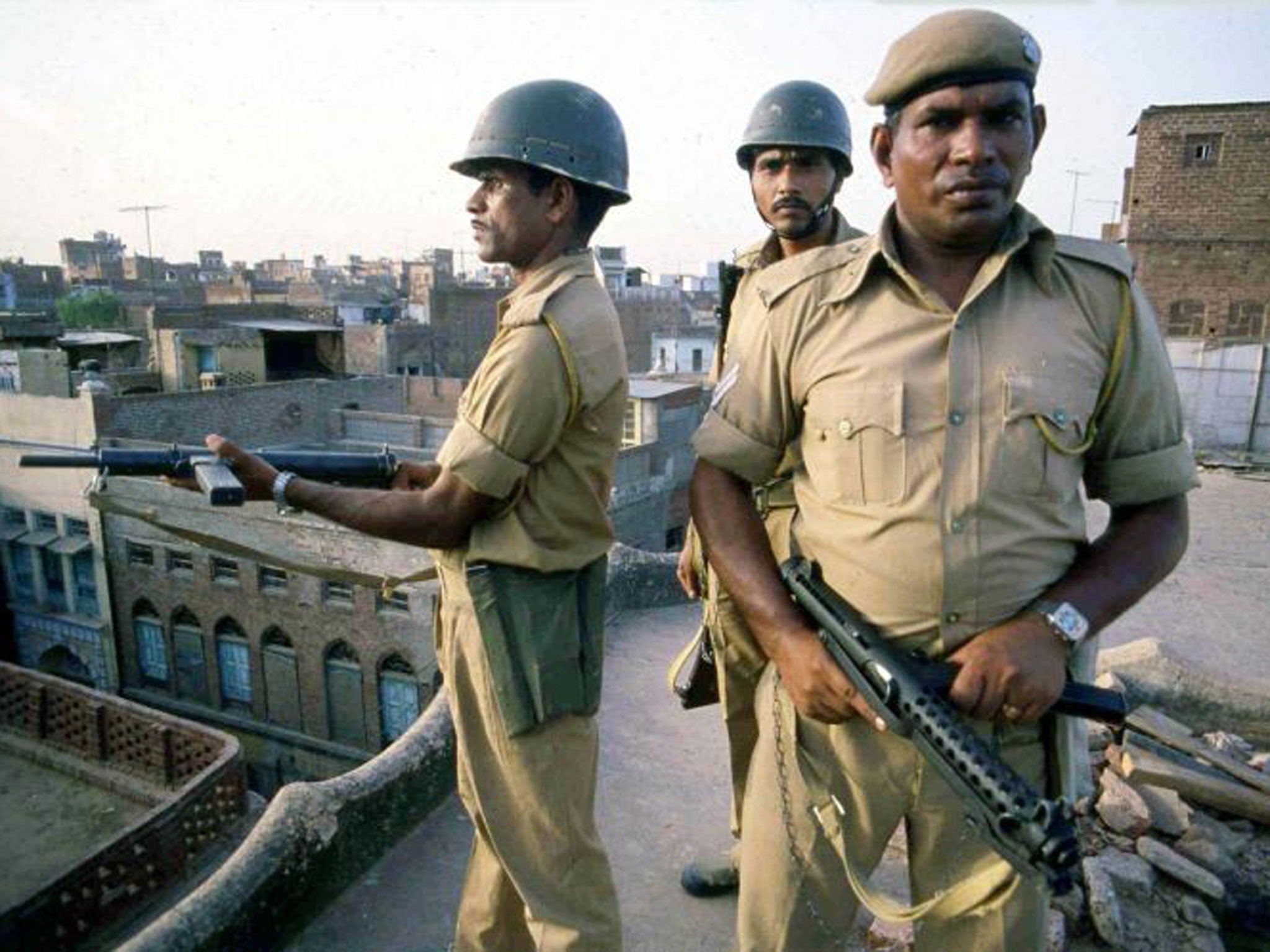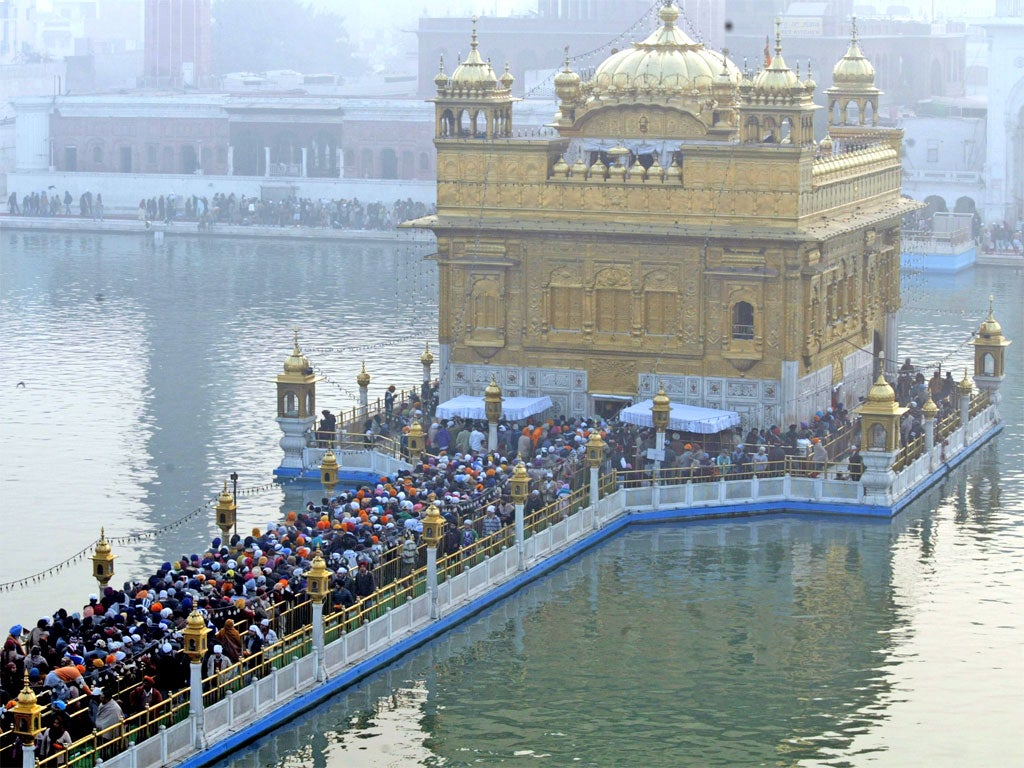Thirty years on from Amritsar: If the SAS were involved, it will embarrass the UK
There would be justifiable anger within the Sikh community


There are good reasons why it would be embarrassing for the UK if it is proved that the SAS under the Thatcher government helped Indian security forces storm the Golden Temple at Amritsar 30 years ago. There would be anger in the Sikh community left scarred by the deaths inflicted and the desecration of their holiest shrine. The fact that alleged British complicity happened in the same city where soldiers of the Raj had shot down hundreds of unarmed protestor in the independence struggle decades before would give it added poignancy.
There would also be embarrassment, at another level, for the SAS. The 1984 assault on the barricaded Sikh separatists and their leader Jarnail Singh Bhindranwale was one of the most inept performed by a major military power in recent times and had been severely criticised in India and abroad. Indeed it is held-up as an example of precisely how not to carry out an urban counter-insurgency operation.
The list of mistakes made at the time is long. The Indian forces suffered from a chronic lack of intelligence about the strength, disposition and weaponry of the Sikh fighters inside the temple; there was a failure to foresee the tactics of their military leader, a highly experienced renegade general; Some of the gunmen escaping when the Temple was supposedly surrounded to fight another day. And, in a move which led to massive destruction, mainline battle tanks and artillery were used with impunity in confined space.
The losses from Operation Blue Star were disputed from the outset. The Army placed the numbers of fatalities at 492 civilians and 136 service personnel. Civil rights campaigners claimed the civilian deaths ran into thousands and government officials later admitted that more than 700 soldiers had been killed in action.

The attack caused major damage to the temple complex; historic manuscripts were burned. The resentment at what had happened led to a mutiny by Sikh soldiers elsewhere, and the assassination of the prime minister, Indira Gandhi, by her Sikh bodyguards. The deep schism has yet to fully heal; the commander who led the assault, General Kuldip Singh Brar, was the victim of a knife attack during a visit to London last year. Another General, Chief of Army Staff at the time of the mission, was murdered in India by two Sikhs.
General Brar insisted yesterday that there was no foreign involvement in the operation. “It was a last-minute operation because the prime minister was negotiating with the Sikh leaders to arrive at an amicable solution. As a last resort, she ordered the operation.” Yet another senior officer, General SK Sinha, who was sacked as General Officer Commanding, of the Army, because he opposed the assault, had stated that his troops had been rehearsing for such a mission for some time.

Could the SAS been associated with a botched venture? Yes. Special Forces in the UK have become adept at leaking news of their successes, but hiding failures under the carapace of ‘national security’. But were they involved in the Golden Temple operation? Mark Tully, the renowned former BBC India correspondent at the time has his doubts. He recalls speaking to the British military attache in Delhi at the time. “ He said that in all of his time in India, he had spent a lot of time trying to persuade the Indian government to make use of the experience that the British had with a similar movement in Northern Ireland, but he got nowhere with it.”
It is indeed the case the UK had been hawking the ‘Northern Ireland experience’ for a long time, certainly to the Americans ad nauseum in Iraq and Afghanistan. I remember a US Marine colonel in Helmand saying: “I’ll shoot the next Brit who goes on about the Northern fucking Ireland fucking experience.” so was there an attempt to introduce a strange version of the lessons of the Falls Road and Crossmaglen to the Punjab with disastrous consequences ? We have yet to see hard evidence: the guys in Hereford will hope it remains that way, otherwise it will be terrible dent to the mystique they work so hard to keep in place.

Join our commenting forum
Join thought-provoking conversations, follow other Independent readers and see their replies